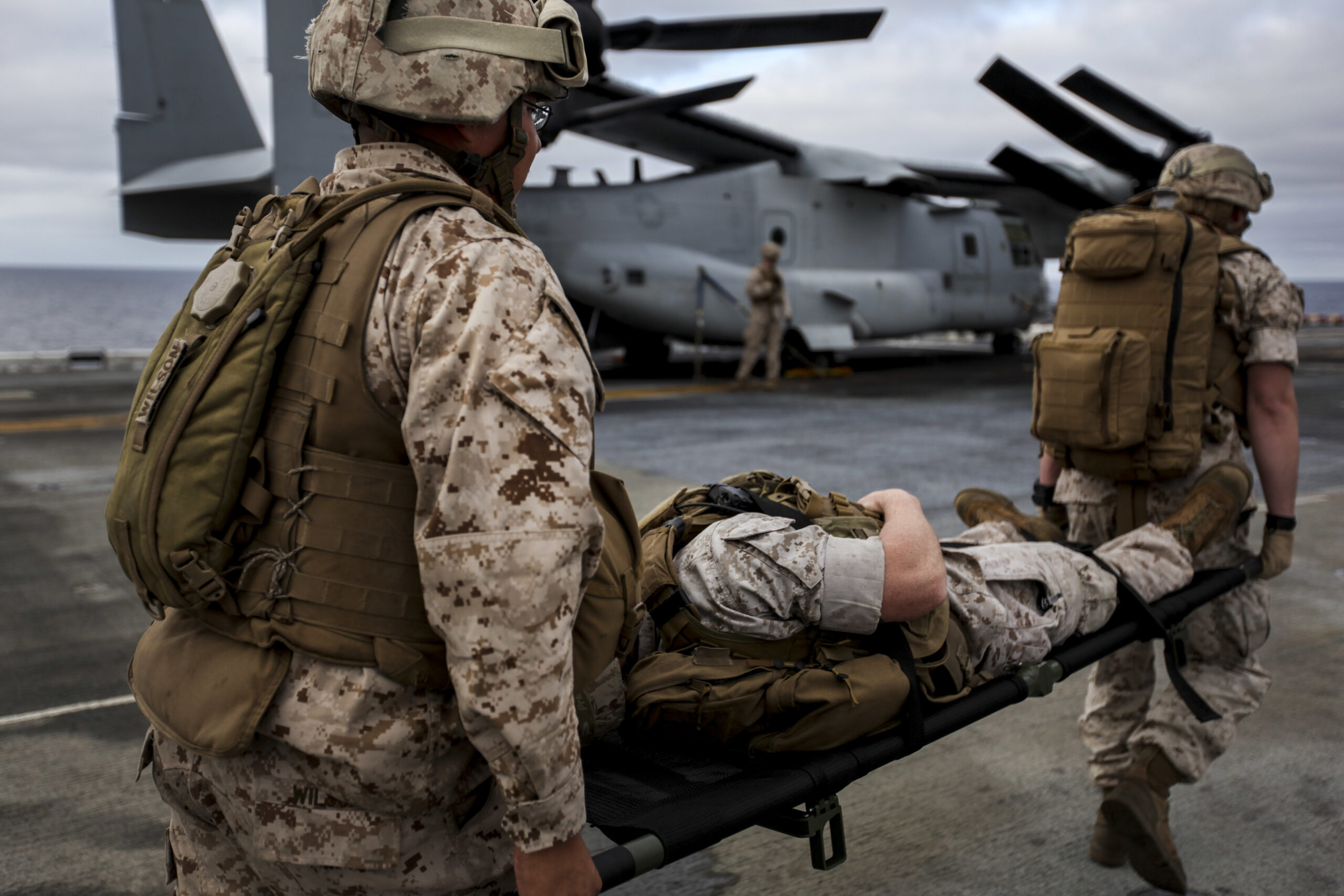16 August 2023
Pioneering Expeditionary Medicine at the 2023 MHSRS
With a rich legacy spanning 30 years, The Geneva Foundation stands as a leading force in advancing military medicine through research, development, and education. Recognizing the critical importance of expeditionary medicine, Geneva’s groundbreaking initiatives take the forefront as we are now in full swing at the highly anticipated 2023 Military Health System Research Symposium (MHSRS). This article sheds light on two remarkable programs in the realm of expeditionary medicine supported by Geneva—Autonomous Reanimation and Evacuation Research (AREVA) and Ready Medic One. These initiatives exemplify Geneva’s dedication to decreasing warfighter mortality and morbidity, especially during expeditions, a paramount goal shared by the Department of Defense, the Defense Health Agency, and the broader Military Health System.
AREVA: Redefining Critical Care in the Far-Forward Environment
Led by Andriy Batchinsky, MD, founder and director of AREVA, this pioneering research program addresses the escalating challenges faced in combat situations, including prolonged critical care and delayed casualty evacuation. With its unique ability to simulate realistic combat scenarios, AREVA leads the charge offering large animal single and polytrauma models and high-altitude chambers. This unparalleled capability enables comprehensive testing of combat casualty care, from injury through stabilization to simulated aeromedical evacuation. Additionally, the availability of climate-controlled chambers allows for evaluating medical treatment scenarios under various environmental conditions. AREVA’s track record of bench-to-bedside research and pragmatic testing further solidifies its position as a key player in advancing critical care practices.
In their relentless pursuit of innovative critical care interventions, Dr. Batchinsky and the visionary team at AREVA have recently achieved a significant milestone. Their groundbreaking invention, the Combat Resuscitation Organ Support System (CROSS), was issued a patent, affirming the remarkable progress made over the past five years. The CROSS represents a remarkable leap forward in the field of extracorporeal life support and a large contribution to expeditionary medicine because it allows for rapid and effective critical care in the far-forward combat environment, directly contributing to the mission of decreasing warfighter mortality and morbidity during expeditions. By combining separate organ support therapies (lung and renal) into a mobile, wearable platform, the AREVA team has revolutionized critical care capabilities, addressing the unique challenges faced in the far-forward combat environment. This achievement exemplifies Geneva’s commitment to expeditionary medicine and its unwavering dedication to advancing life-saving technologies to benefit warfighter survival and health.
Advancing Critical Care Readiness for Challenging Environments with VR Innovations
Kyle Couperus, MD, MBA, BSN, Geneva Principal Investigator, is pioneering groundbreaking work in virtual reality (VR) medical simulation training. By immersing participants in identical virtual environments with autonomous interactive trauma scenarios, his research aims to expedite assimilation to deployed treatment environments, reduce time to life-saving interventions, and improve overall medical provider readiness. Preliminary results indicate the immersive virtual reality (IVR) system delivers a realistic and responsive training experience without the need for an instructor, making it a promising modality for military medical settings.
Geneva actively supports multiple other projects pertaining to expeditionary medicine led by Dr. Couperus and his team:
- Developing an immersive virtual reality (IVR) trauma simulator for mass casualty incidents (MCI) with dynamic and realistic simulations for decision training without instructors.
- Exploring the usability of a hybrid VR simulation platform for Chemical, Biological, Radiological, and Nuclear Explosives (CBRNE) preparedness, enabling physiologically responsive scenarios.
- Advancing the development and evaluation of a VR training curriculum for medical personnel to effectively respond to CBRNE incidents, employing validated physiology and integrated part-task trainers for improved readiness.
- Collaboratively developing the TeleHelper for Operational Medical Procedure Support and Offline Network (THOMPSON) with 2021 Geneva Researcher of the Year LTC (Ret.) Christopher Colombo, MD, FACP, FCCM. The project aims to create a voice-controlled mobile application powered by AI and ML, offering clinical decision support for prolonged casualty care in challenging environments with limited resources.
Expeditionary medicine is the crucial bridge that ensures our service members receive essential medical care and support, regardless of the remote and demanding operational settings they find themselves in. Geneva plays a vital role in this endeavor by providing comprehensive programmatic support, spanning from grant facilitation, competition, and post-award management to procurement of essential supplies and equipment. Serving as both subcontractor and primary awardee for various programs, Geneva leverages its expertise in research personnel management, vendor coordination, and contract oversight to drive these initiatives forward. The notable initiatives led by Dr. Batchinsky’s AREVA and Dr. Couperus’ Ready Medic One exemplify Geneva’s unwavering commitment to advancing expeditionary medicine.
Disclaimer: The views expressed do not reflect the official policy of the Army, the Department of Defense, or the U.S. Government.

HIGHLIGHTS
- Expeditionary medicine is the crucial bridge that ensures our service members receive essential medical care and support, regardless of the remote and demanding operational settings they find themselves in.
- Led by Andriy Batchinsky, MD, founder and director of AREVA, this pioneering research program addresses the escalating challenges faced in combat situations, including prolonged critical care and delayed casualty evacuation.
- Kyle Couperus, MD, MBA, BSN, Geneva Principal Investigator, is pioneering groundbreaking work in virtual reality (VR) medical simulation training.


